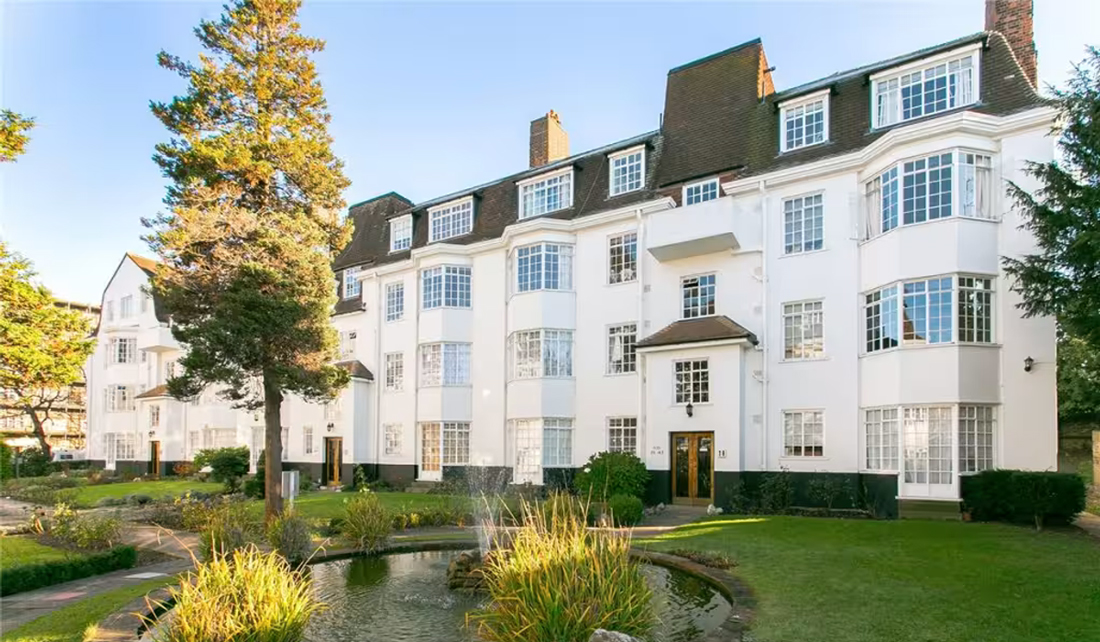Are you paying too much for your mortgage?
27% of homeowners with a mortgage are on their lender’s standard variable rate. Could you be one of them?
When your mortgage deal period ends, you’ll normally move onto your lender’s standard variable rate.
A standard variable rate (or SVR) is usually a lot higher than your existing rate. Currently the average is averaging out at 8.65% across all lenders, and it can change at any time your lender decides.
Some lenders move you onto a ‘follow on’ rate instead, which can be even higher than their standard variable rate.
According to recent research by mortgage broker Habito, one in 10 mortgagees believe that paying a more expensive rate on their mortgage meant they’d be paying off their mortgage quicker.
It doesn’t. It simply means you’re paying the lender more interest instead.
Your lender will be able to tell you in advance what your monthly payment will be once your current deal ends.
How much more expensive is a lender’s standard variable rate?
An SVR or ‘follow on’ rate can be between 2% and 3% higher than the average five-year or two-year fixed rate mortgage.
And the lender can raise the rate at any time.
When the Bank of England increases the Base Rate (which it has done 14 times since December 2021) SVR and tracker rate mortgages may increase too, as they usually follow the Base Rate.
However there are exceptions. And some lenders have opted not to increase the rate on their SVR mortgages when the Base Rate has risen.
Your lender will always let you know what’s happening with your mortgage rate.
Current SVRs and fixed rate deals from major lenders
Let’s take a look at the standard variable rate and fixed rate mortgage deals currently being offered by some of the major lenders.
|
Lender |
SVR |
5-year fixed |
2-year fixed |
|
Barclays |
8.74% |
4.5% |
4.95% |
|
Halifax / Lloyds |
8.74% |
4.32% |
4.67% |
|
HSBC |
6.99% |
4.28% |
4.79% |
|
Nationwide |
7.99% |
5.04% |
4.32% |
|
Santander |
8.25% |
4.37% |
4.78% |
|
The Mortgage Works (buy to let) |
8.49% |
4.49% |
4.79% |
|
Virgin Money |
9.49% |
4.64% |
5.14% |
|
Yorkshire BS |
7.99% |
4.43% |
4.77% |
If you had a £200,000 mortgage spread over 25 years on a £250,000 property, you could end up paying several hundred of pounds more in interest each month on the lender’s SVR.
To cite Virgin Money’s rates above as an example:
On the standard variable rate of 9.49%, you’d be paying £1,746 a month.
At the two-year fixed rate of 5.14%, you’d be paying £1,185 a month.
With the five-year fixed rate of 4.64%, you’d be paying £1,127 a month.
That’s a potential difference of £619 a month, or £7,428 a year, between a lender’s standard variable rate mortgage and fixed rate deal.
Use our mortgage calculator to work out what your monthly payments could be.
Why are so many people on standard variable rate mortgages?
Habito’s research suggests many homeowners are slipping onto their lender’s SVR without even realising it or knowing that they have an alternative.
But it’s always worth contacting a broker 3-6 months before your current mortgage deal is due to end.
You can book in a new deal up to six months in advance.
And if a better rate comes up between the time you booked the deal and the time it’s due to begin, you can simply book in that rate instead.
Your mortgage broker will be the best person to advise you on what to do.
Financial concerns
One in 10 homeowners were frightened of lenders scrutinising their finances, given the current economic climate.
This is where a broker can help. They have an in-depth knowledge of the mortgage market and know the rules that different lenders operate by.
Once your broker has an understanding of your financial circumstances, they’ll know which lenders to approach on your behalf.
Unaware of mortgage alternatives
One in 10 didn’t realise it could be possible to get a cheaper mortgage deal.
A mortgage broker will scour the market for you to find the cheapest mortgage rates available to you.
Too much hassle to switch mortgages
In a recent survey by Which?, 41% of homeowners on an SVR mortgage said they’d be unlikely to switch to a cheaper deal.
They felt it ‘wasn’t worth the hassle’ or they ‘hadn’t really thought about it’.
This in part may be because homeowners with smaller mortgages are less likely to feel the financial hit when moving onto an SVR.
But when the savings can run into hundreds of pounds a month, it’s a call to a broker that’s worth making.
Fears of being in negative equity
Other homeowners were concerned that they might be in negative equity.
Negative equity is when a property you own is worth less than the mortgage you're paying on it.
What is negative equity?
Most lenders won't let people with negative equity switch to a new mortgage deal when their existing one ends. Instead, they'll normally be moved onto their standard variable rate.
You can find out if you’re in negative equity by checking the balance left on your mortgage and inviting estate agents round to value your home.
If you are in negative equity, it could still be worth speaking with a mortgage broker, as they may be able to find a lender that could help.
Mortgage rates set to stay at around 4+% in 2024
In good news for homeowners and buyers, mortgage rates are now holding steady and look set to plateau at around or just over 4% for the rest of the year.
Inflation has now come down and so have swap rates - the rates the banks pay to borrow money.
Swap rates are based on what the markets think the interest rate will be in the future.
Right now, the average mortgage rate for a 5-year fixed rate at 75% loan to value has reached 4.59%, across the big six lenders.
The reduction in swap rates will take time to feed through into mortgage rates, and our Executive Director - Research, Richard Donnell, believes mortgage rates are unlikely to drop further this year.
Will mortgage rates go down in 2024?
Whether you need to remortgage now or in six months time, if your current mortgage deal is coming to an end soon, it’s well worth contacting a mortgage broker.
They will be fully up to speed on the latest mortgage market trends and current rates available.
And they are in the best place to advise you on getting the cheapest possible mortgage deal for you.
Home values on the up in 2024
The average UK home is now worth £2,400 more than it was 6 months ago. But if you own a terraced property in the north, it's likely to be a lot more than that.
Growing buyer confidence and a rising number of sales in the first half of 2024 are translating into a firming up of home values.
Our latest estimates reveal the average UK home is now worth £278,000, up £2,400 from December 2023.
Every month, we generate value estimates for nearly 30m UK homes, using a combination of local sold and asking price data to show indicative home values.
Our data reveals half of UK homes (15 million) increased in value in the first half of 2024 by 1% or more. That’s the highest number since December 2022.
And while most of the gains are modest, a third of UK homes (10 million) went up by £5,000 in value, that’s twice the number of homes that saw this increase in 2023 (5.4 million).
In the same period, 8 million homes (27%) have kept their values broadly the same (changes within 1%).
Overall, 6.7 million UK homes have fallen in value by at least 1% since the end of 2023, a sign that some markets are taking longer to recover from the effects of higher mortgage rates.
That said, 14 million homes were losing value at the end of 2023, so it’s a step in the right direction for homeowners impacted by recent price falls.
Meanwhile, the north-south value divide continues, with fewer homes in the south gaining value, as higher prices exaggerate the impact of higher mortgage rates on buying power.

Terraced homes in the north make biggest value gains
Home values are rising fastest in northern England.
In Yorkshire and the Humber homes went up 1.4%, while in the North East they rose by 1.9%.
Overall, half of homes in northern England went up in value by £1,000 to £10,000, while 1 million homes (14%) gained more than £10,000.
Homeowners in Oldham (83%), Wakefield (77%) and Co. Durham were most likely to see their home values increase by 1% or more.
And homes under £150,000 are seeing the greatest value growth (5%+), especially terraced properties, with nearly a fifth rising by 5% or more in value.
This clearly shows that value-for-money homes are a popular choice among buyers facing higher mortgage costs.

Most expensive homes more likely to go up in value in southern regions
Pricier homes in the south have seen their values impacted by higher mortgage rates and consequently their home values are taking longer to recover.
Since the start of 2024, the typical value increase here has been below 1%. Yet nearly 6 million homes have risen by more than that - the highest number since the end of 2022.
The top 10% of the most expensive homes in the south actually saw more gains than their cheaper or average-priced counterparts.
In areas where house prices are above the average, such as West-Central London, Watford and Bath, 7 in 10 homes have risen in value, with most seeing gains of £5,000+.
However, nearly 3.5 million properties in southern England have continued to see their values fall - and many of these homes were detached.
The market for these homes suffered from a demand/supply imbalance earlier this year, as aspirational buyers continued to reassess their requirements in the face of high borrowing costs.
Will home values keep rising now?
Our expectation is for house prices to grow by 1.5% by the end of the year.
But the south-north divide is here to stay, with homes in the north showing above average growth.
Those increases are unlikely to return to pandemic levels however, unless mortgage rates fall dramatically.
Meanwhile, house prices in the south of England are expected to continue to track below the UK average as they realign with people’s incomes.
Key takeaways
- Half of UK homes (15 million) increased in value by more than 1% in the first half of 2024
- Overall, the value of the average UK home has gone up by £2,400
- And 1m homes in northern England have increased in value by £10,000 or more
- Meanwhile a further 6.7m homes have fallen in value
- And the north-south divide continues to grow, with home values rising in the north and declining in the south
- That said, higher-value homes in the south are bucking the trend and their values are still on the up
Renters Rights Bill: what it means for renters and landlords
The new Labour government has introduced a Renters Rights Bill. So what does this mean for renters and landlords? Our Executive Director of Research, Richard Donnell, shares his insights.
The overall experience of renting is positive but its poor for a significant minority
Rental reform is back on the agenda for the new Government with a rebranded Renters Rights Bill. It brings forward many of the proposals that were making their way through Parliament before the election was called.
While debates on rental reform are often framed in examples of poor or bad practice, the reality is that most private renters are satisfied with their experience of renting.
A recent survey of private renters found eighty five percent were satisfied, or better, with their rental experience while 86% were satisfied, or better, with the condition of their home.
However, there remains a small but not insignificant number of homes which are in poor condition, where renters are having a poor or unsatisfactory experience.
This is where reforms are needed to improve standards for renters, while still encouraging more investment to expand the number of homes for rent - both private and social.
Static number of homes for rent making problems worse
The stock of social rented homes has been static for 20+ years, meaning the private rented sector has absorbed a growing proportion of demand from those in the greatest housing need.
A quarter of private renters are on low incomes and in receipt of full or partial housing benefit.
Consumers recognise the problems facing renters and want reforms
We ran a pre-election survey with Ipsos on what the new Government's priorities should be when it comes to renting.
Controlling the pace of rent rises was the 4th most popular response, while rolling out improved rights and protections for renters came in at number 10.
But building more homes was the top priority across the board.
What is in the proposed Renters Rights Bill?
The bill applies to renting in England with some elements also including Wales.
Scotland and Wales have already made a series of changes to improve the rights and protections for renters, so the Renters Rights Bill mainly covers how England plans to improve its rented sector.
Renters will be pleased to see a raft of proposals such as the ending of section 21, so called ‘no fault’ evictions, while still allowing landlords grounds for possession.
There are plans to improve rights to challenge rent increases as well as a right to request a pet, which landlords must consider and cannot unreasonably refuse. Landlords will be able to request insurance to cover potential damage from pets if needed.
Less clear is how the Bill will ‘stop bidding wars’, given there are simply not enough rented homes, with 15 people chasing every rented home right now, double the pre-pandemic level.
As well as more protections for renters, there are some important plans to improve the quality of rented accommodation, such as a new rented property database and plans to introduce a Decent Homes Standard for private rented properties.
What is missing from the Renters Rights Bill?
These reforms don’t go as far as in Scotland and Wales in terms of security of tenure but they are an important step to ensuring greater balance between landlords and renters.
The Government has also avoided any talk of rent controls, which might sound attractive at face value but put off investment in new supply. Growing supply is the most sustainable way to stop rents rising quickly.
Mandatory training for anyone involved in letting and managing property is another option that exists today, and which many agents undertake, but it could be rolled out across the market.
What impact does the Renters Rights Bill have on landlords?
Landlords have faced greater taxation and increased regulations for some years now. And renting property is a complex process.
Together with higher mortgage rates, this has led some landlords to decide to sell up. There isn’t an exodus of landlords but those who don’t see it as a business and for whom the costs and risks are too high are deciding to sell.
The underlying cashflow from renting is set to remain strong but, as with everything, the costs of business have increased.
Landlords who see renting as an income-producing business should not be overly concerned by these proposed reforms.
The focus for landlords will continue to be buying homes in areas of high tenant demand that are in good condition, with low maintenance and running costs to minimise the impact on rental income.
Key takeaways
- The new Renters Rights Bill is designed to improve rights and protections for renters
- It will focus on improving the quality of rented homes
- But growing rental supply is ultimately the long term solution to giving renters a better experience
- And landlords who see renting as a business should not be threatened by these changes



